Subscriber Benefit
As a subscriber you can listen to articles at work, in the car, or while you work out. Subscribe NowDelaware Circuit Court 2 Judge Kimberly Dowling said she has appreciated seeing trials from the court’s perspective for the last 11 years after being a practicing attorney.
One of the first things she noticed as a judge, Dowling said, was the number of continuances filed on a daily basis.
“I respect attorneys and the problems they face in representing clients with all the vigor they can,” Dowling said. But she added that there are obvious issues that make proceedings in civil matters move inefficiently.
To that end, Dowling implemented some rules for her family law cases.
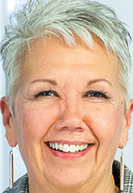
If an attorney asks for a hearing that’s a half day or longer, they also must hold a final pretrial conference 30 days before the hearing. That way, Dowling can determine if discovery is actually complete and if they’re ready for the hearing. And the only way the hearing won’t happen is if there’s a settlement or someone is sick.
“That has worked exceedingly well,” she said.
Now, Dowling will
help determine if a similar method can work on a wider variety of civil cases as part of a pilot program recently established by the Indiana Supreme Court.
The Civil Case Management Pathways Pilot Project is meant to decrease the amount of time until case disposition, reduce discovery disputes and allow judges to spend more time on complicated issues.
There are three pathways, depending on case type: streamlined, complex and general. Cases will be presumptively assigned to either the streamlined or complex pathway, but the parties or judge can move a case to a different pathway as needed.
The pilot started with cases filed June 1 in seven courts around the state. Dowling said it will probably be about a year before judges will be able to say whether the pathways approach is working.
She said she’s hoping for the same kind of success she’s seen with her family
law cases.
How it works
The streamlined pathway will hold the bulk of civil case types: civil collections, petitions for eviction, mortgage foreclosures, miscellaneous, verified petitions for issuance of a tax deed and applications for judgment in a tax sale.
Civil tort and civil plenary cases will be presumptively assigned to the complex pathway.
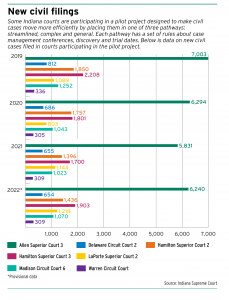 The third pathway, general, is for cases that fall somewhere between streamlined and complex.
The third pathway, general, is for cases that fall somewhere between streamlined and complex.
For complex and general pathway cases, judges will set early case management conferences and enter a case management order and discovery protocol, according to the May 19 Indiana Supreme Court order creating the pilot project.
Firm trial dates must be set 18 months from the date of the case management conference for complex cases, the order says.
That timeline shrinks to 12 months for general cases and six months for streamlined cases.
The Supreme Court order also details rules regarding discovery.
In streamlined cases, for example, mandatory disclosures must be made within 30 days of execution of the discovery protocol, and each party is limited to no more than two depositions.
For complex cases, there’s a 45-day window for mandatory disclosures, and there can’t be more than 10 depositions.
Potential impact
Although he’s participating, Madison Circuit Court 6 Judge Mark Dudley said the pilot program isn’t about him. The point of it, he said, is that justice is better served by getting to case disposition in a timely manner for attorneys and their clients.
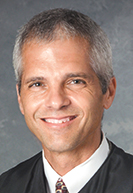
“I’ll be here, and I’ll handle it. I won’t be affected if a case is here five years,” Dudley said, adding that he wants to be a “good steward of the system.”
The longer a case goes, the more filings and hearings there are, he said, which piles on to the cost litigants already have to pay.
“We want to be able to get quick resolutions of cases efficiently,” he said.
Warren Circuit Judge Hunter Reece said he’s excited about the possibilities of the pilot project. In a smaller county like his, Reece said he thinks the biggest benefit will be preventing cases from “falling in the cracks” by stalling on the docket. Also, he said he hopes it will allow attorneys to better manage cases and provide some predictability.
“That’s where I see it helping our smaller court more so,” he said.
Reece said he anticipates larger counties in the pilot, such as Hamilton and Allen, will see the biggest impact.
Other state programs
The pathways approach came out of recommendations from the Indiana Civil Litigation Taskforce, which formed in 2021 to consider how to improve the handling of civil litigation based on previous work from organizations such as the National Center for State Courts.
Paula Hannaford-Agor is in the research division for the NCSC, which endorsed the pathways approach in 2016. Hannaford-Agor said some of the other states that are working on similar programs have tied their pathway assignments to dollar amounts.
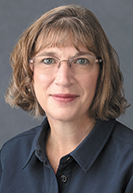
But Indiana’s approach of assigning pathways based on case type is probably more in line with recommendations the NCSC endorsed, she said. That’s because case type is likely more indicative of how complex a case actually is.
While the “devil is in the details,” Hannaford-Agor said pilots in other states have generally been successful.
Looking specifically at a program in Miami — which Florida eventually adopted statewide — Hannaford-Agor said one thing researchers learned was that lawyers who said they just wanted cases done more efficiently were happy with the results and thought it made state courts look more like federal courts with a high expectation for professionalism.
On the other hand, she said, there are some attorneys who tend to take otherwise simple cases and stretch them to the full length of what the rules allow, making cases move less efficiently.
“There are attorneys who like to play those games who will be very unhappy with the rules,” she said.
A litigator’s perspective
Matt Kelsey, an attorney in DeFur Voran’s Muncie office, said he hopes streamlining relatively simple cases will give judges more time to work on complex issues.
“I’m obviously all for making civil litigation more efficient for clients, attorneys and judges alike,” he said.
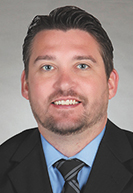
Kelsey said his clients, which include Ball State University, would appreciate more productive hearings and case management plans. A lot of court dockets are still backlogged from the pandemic, Kelsey said, meaning it can still take almost a year to get on the court calendar for even simple cases.
“That’s sort of frustrating,” he said. “Some cases are ready to go, but just because of the backlog of the court, you can’t get the resolution for the client.”
Kelsey also echoed Hannaford-Agor’s comparison to the federal courts, where he said case management seems more regimented.
“I actually appreciate the federal court process,” he said.•
Please enable JavaScript to view this content.
